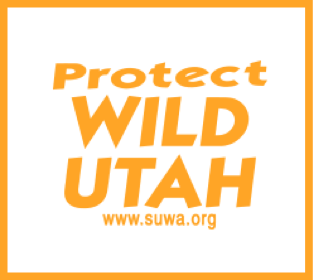|
SUWA's response to KUER radio story about wilderness legislation The Washington County Wilderness Bill: Some have tried to characterize the Washington County wilderness legislation – which we ultimately supported after important revisions were made – as a consensus approach on which future bills should be modeled. The legislation was not the result of consensus, but rather a political fight. The result was a good step forward for Utah wilderness, but the wilderness issue has not been resolved in Washington County, and the process was certainly not a model for resolving wilderness issues elsewhere. The Utah congressional delegation and the Washington County commissioners tried to pass the legislation over the concerns of the Utah Wilderness Coalition. Senator Bennett and Congressman Matheson first introduced legislation in 2006 which we (along with our Utah Wilderness Coalition partners and local opposition lead by Citizens for Dixie’s Future) successfully blocked. In spring of 2008, Senator Bennett introduced new legislation. The Utah Wilderness Coalition recognized this was an improved bill, but it still contained troubling language. America’s Red Rock Wilderness Act Senate champions also raised concerns, and the Senate Energy & Natural Resources Committee refused to allow the bill to be included within a larger wilderness legislative package. Senator Bennett tried to maneuver past the Senate committee by attaching his legislation to a continuing resolution in the House of Representatives, but he failed (we actively worked to block this maneuver). Senator Bennett then made important concessions in order to see his legislation proceed through the Senate. With these changes, SUWA determined that the legislation was acceptable and supported its passage. The bill passed in early 2009 as part of the omnibus wilderness bill. Importantly, because it was not a consensus bill, there is no agreement or reason to remove lands in America’s Red Rock Wilderness Act that were not protected by the Washington County bill. Congressman Hinchey has made clear that these areas will remain in his legislation. There is still work to be done in Washington County. The Utah Wilderness Coalition executive committee, including SUWA, Sierra Club, NRDC, Earthjustice and the Wasatch Mountain Club, recognizes that removal of lands in the Red Rock bill is an important incentive for stakeholders to resolve the wilderness issue. However, this step only makes sense if there is an agreement which provides meaningful protection to Utah’s last remaining wild lands. Omitting lands from the Red Rock bill must be agreed upon by the Utah Wilderness Coalition and, more importantly, the bill’s sponsors in Congress. Emery County: Unlike the situation in Washington County, there have been numerous positive discussions between us and political officials in Emery County around the wilderness issue. However, the KUER story was wrong to suggest that there is some proposal. Rather, we are in the middle of discussions, and we look forward to continuing a long and productive relationship with the county that will hopefully result in a solid wilderness bill. Beaver/Piute Counties: We have had tentative discussion with the county commissioners in these counties. However, we’ve viewed only a portion of the BLM lands in Beaver County with officials there and have had no field trips yet with the Piute County commissioners. Nor have we (or the Utah Wilderness Coalition) had the opportunity for any field trips to view National Forest lands in the Tushar Mountains -- which are now under snow. These site visits are an important component of the negotiating process, and it is very difficult to imagine how legislation could be introduced early in 2010 unless the intention is to try to bypass the Utah Wilderness Coalition. We still hope to work with the commissioners there to reach an agreement rather than to engage in another Washington County-style political fight in Congress.
|
|
|

 Southern Utah Wilderness Alliance
Southern Utah Wilderness Alliance
Protecting Utah's Redrock Country
